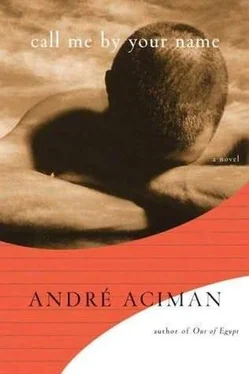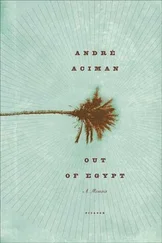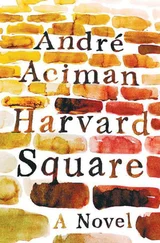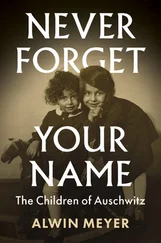André Aciman - Call Me by Your Name
Здесь есть возможность читать онлайн «André Aciman - Call Me by Your Name» весь текст электронной книги совершенно бесплатно (целиком полную версию без сокращений). В некоторых случаях можно слушать аудио, скачать через торрент в формате fb2 и присутствует краткое содержание. Год выпуска: 2007, Издательство: Farrar, Straus and Giroux, Жанр: Современная проза, на английском языке. Описание произведения, (предисловие) а так же отзывы посетителей доступны на портале библиотеки ЛибКат.
- Название:Call Me by Your Name
- Автор:
- Издательство:Farrar, Straus and Giroux
- Жанр:
- Год:2007
- ISBN:нет данных
- Рейтинг книги:5 / 5. Голосов: 6
-
Избранное:Добавить в избранное
- Отзывы:
-
Ваша оценка:
- 100
- 1
- 2
- 3
- 4
- 5
Call Me by Your Name: краткое содержание, описание и аннотация
Предлагаем к чтению аннотацию, описание, краткое содержание или предисловие (зависит от того, что написал сам автор книги «Call Me by Your Name»). Если вы не нашли необходимую информацию о книге — напишите в комментариях, мы постараемся отыскать её.
is clear-eyed, bare-knuckled, and ultimately unforgettable.
Call Me by Your Name — читать онлайн бесплатно полную книгу (весь текст) целиком
Ниже представлен текст книги, разбитый по страницам. Система сохранения места последней прочитанной страницы, позволяет с удобством читать онлайн бесплатно книгу «Call Me by Your Name», без необходимости каждый раз заново искать на чём Вы остановились. Поставьте закладку, и сможете в любой момент перейти на страницу, на которой закончили чтение.
Интервал:
Закладка:
And yet, about two weeks after his arrival, all I wanted every night was for him to leave his room, not via its front door, but through the French windows on our balcony. I wanted to hear his window open, hear his espadrilles on the balcony, and then the sound of my own window, which was never locked, being pushed open as he’d step into my room after everyone had gone to bed, slip under my covers, undress me without asking, and after making me want him more than I thought I could ever want another living soul, gently, softly, and, with the kindness one Jew extends to another, work his way into my body, gently and softly, after heeding the words I’d been rehearsing for days now, Please, don’t hurt me, which meant, Hurt me all you want.
I seldom stayed in my room during the day. Instead, for the past few summers I had appropriated a round table with an umbrella in the back garden by the pool. Pavel, our previous summer resident, had liked working in his room, occasionally stepping out onto the balcony to get a glimpse of the sea or smoke a cigarette. Maynard, before him, had also worked in his room. Oliver needed company. He began by sharing my table but eventually grew to like throwing a large sheet on the grass and lying on it, flanked by loose pages of his manuscript and what he liked to call his “things”: lemonade, suntan lotion, books, espadrilles, sunglasses, colored pens, and music, which he listened to with headphones, so that it was impossible to speak to him unless he was speaking to you first. Sometimes, when I came downstairs with my scorebook or other books in the morning, he was already sprawled in the sun wearing his red or yellow bathing suit and sweating. We’d go jogging or swimming, and return to find breakfast waiting for us. Then he got in the habit of leaving his “things” on the grass and lying right on the tiled edge of the pool — called “heaven,” short for “This is heaven,” as he often said after lunch, “I’m going to heaven now,” adding, as an inside joke among Latinists, “to apricate.” We would tease him about the countless hours he would spend soaking in suntan lotion as he lay on the same exact spot along the pool. “How long were you in heaven this morning?” my mother would ask. “Two straight hours. But I plan to return early this afternoon for a much longer aprication.” Going to the orle of paradise also meant lying on his back along the edge of the pool with one leg dangling in the water, wearing his headphones and his straw hat flat on his face.
Here was someone who lacked for nothing. I couldn’t understand this feeling. I envied him.
“Oliver, are you sleeping?” I would ask when the air by the pool had grown oppressively torpid and quiet.
Silence.
Then his reply would come, almost a sigh, without a single muscle moving in his body. “I was.”
“Sorry.”
That foot in the water — I could have kissed every toe on it. Then kissed his ankles and his knees. How often had I stared at his bathing suit while his hat was covering his face? He couldn’t possibly have known what I was looking at.
Or:
“Oliver, are you sleeping?”
Long silence.
“No. Thinking.”
“About what?”
His toes flicking the water.
“About Heidegger’s interpretation of a fragment by Heraclitus.”
Or, when I wasn’t practicing the guitar and he wasn’t listening to his headphones, still with his straw hat flat on his face, he would suddenly break the silence:
“Elio.”
“Yes?”
“What are you doing?”
“Reading.”
“No, you’re not.”
“Thinking, then.”
“About?”
I was dying to tell him.
“Private,” I replied.
“So you won’t tell me?”
“So I won’t tell you.”
“So he won’t tell me,” he repeated, pensively, as if explaining to someone about me.
How I loved the way he repeated what I myself had just repeated. It made me think of a caress, or of a gesture, which happens to be totally accidental the first time but becomes intentional the second time and more so yet the third. It reminded me of the way Mafalda would make my bed every morning, first by folding the top sheet over the blanket, then by folding the sheet back again to cover the pillows on top of the blanket, and once more yet when she folded the whole thing over the bedspread — back and forth until I knew that tucked in between these multiple folds were tokens of something at once pious and indulgent, like acquiescence in an instant of passion.
Silence was always light and unobtrusive on those afternoons.
“I’m not telling,” I said.
“Then I’m going back to sleep,” he’d say.
My heart was racing. He must have known.
Profound silence again. Moments later:
“This is heaven.”
And I wouldn’t hear him say another word for at least an hour.
There was nothing I loved more in life than to sit at my table and pore over my transcriptions while he lay on his belly marking pages he’d pick up every morning from Signora Milani, his translator in B.
“Listen to this,” he’d sometimes say, removing his headphones, breaking the oppressive silence of those long sweltering summer mornings. “Just listen to this drivel.” And he’d proceed to read aloud something he couldn’t believe he had written months earlier.
“Does it make any sense to you? Not to me.”
“Maybe it did when you wrote it,” I said.
He thought for a while as though weighing my words.
“That’s the kindest thing anyone’s said to me in months”—spoken ever so earnestly, as if he was hit by a sudden revelation and was taking what I’d said to mean much more than I thought it did. I felt ill at ease, looked away, and finally muttered the first thing that came to mind: “Kind?” I asked.
“Yes, kind.”
I didn’t know what kindness had to do with it. Or perhaps I wasn’t seeing clearly enough where all this was headed and preferred to let the matter slide. Silence again. Until the next time he’d speak.
How I loved it when he broke the silence between us to say something — anything — or to ask what I thought about X, or had I ever heard of Y? Nobody in our household ever asked my opinion about anything. If he hadn’t already figured out why, he would soon enough — it was only a matter of time before he fell in with everyone’s view that I was the baby of the family. And yet here he was in his third week with us, asking me if I’d ever heard of Athanasius Kircher, Giuseppe Belli, and Paul Celan.
“I have.”
“I’m almost a decade older than you are and until a few days ago had never heard of any of them. I don’t get it.”
“What’s not to get? Dad’s a university professor. I grew up without TV. Get it now?”
“Go back to your plunking, will you!” he said as though crumpling a towel and throwing it at my face.
I even liked the way he told me off.
One day while moving my notebook on the table, I accidentally tipped over my glass. It fell on the grass. It didn’t break. Oliver, who was close by, got up, picked it up, and placed it, not just on the table, but right next to my pages.
I didn’t know where to find the words to thank him.
“You didn’t have to,” I finally said.
He let just enough time go by for me to register that his answer might not be casual or carefree.
“I wanted to.”
He wanted to, I thought.
I wanted to , I imagined him repeating — kind, complaisant, effusive, as he was when the mood would suddenly strike him.
To me those hours spent at that round wooden table in our garden with the large umbrella imperfectly shading my papers, the chinking of our iced lemonades, the sound of the not-too-distant surf gently lapping the giant rocks below, and in the background, from some neighboring house, the muffled crackle of the hit parade medley on perpetual replay — all these are forever impressed on those mornings when all I prayed for was for time to stop. Let summer never end, let him never go away, let the music on perpetual replay play forever, I’m asking for very little, and I swear I’ll ask for nothing more.
Читать дальшеИнтервал:
Закладка:
Похожие книги на «Call Me by Your Name»
Представляем Вашему вниманию похожие книги на «Call Me by Your Name» списком для выбора. Мы отобрали схожую по названию и смыслу литературу в надежде предоставить читателям больше вариантов отыскать новые, интересные, ещё непрочитанные произведения.
Обсуждение, отзывы о книге «Call Me by Your Name» и просто собственные мнения читателей. Оставьте ваши комментарии, напишите, что Вы думаете о произведении, его смысле или главных героях. Укажите что конкретно понравилось, а что нет, и почему Вы так считаете.









